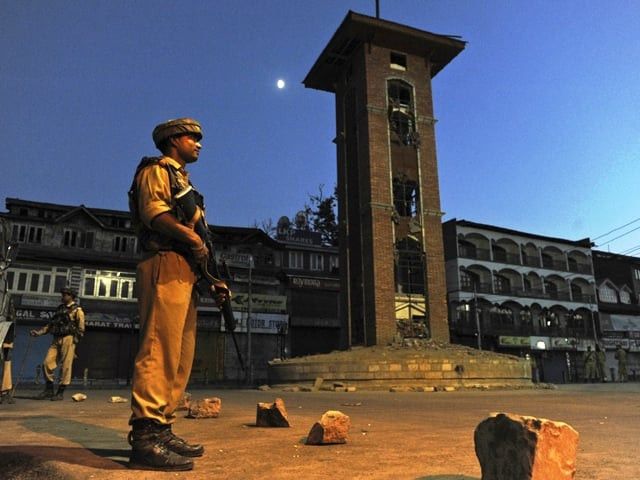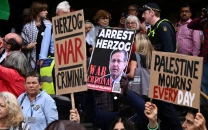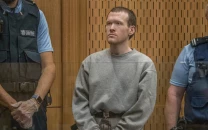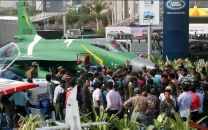New violence as Indian experts arrive in Kashmir
Experts appointed by India to lead a dialogue process in restive Kashmir arrive to violence in the region.

Indian Kashmir has seen some of its biggest demonstrations against rule from New Delhi over the last four months, which have left 111 civilians dead, most of them shot by security forces.
Home Minister P. Chidambaram said last week that the government had selected senior journalist Dilip Padgaonkar and professors M.M. Ansari and Radha Kumar to hold talks with separatists and ordinary people in the troubled state.
"Our main focus is to address the political angle of the Kashmir dispute," Padgaonkar told reporters after the team's arrival in Srinagar, the summer capital of Indian Kashmir.
"We're here to talk to every shade of opinion and we're here to listen to the people," he said, adding that the group was on a four-day tour of the Muslim-majority Kashmir valley -- the scene of the recent protests.
"We have already fixed some appointments ... some more will be fixed in the course of the visit. We are planning to meet students on Monday," he said.
Kashmiri separatists have rejected the appointment of experts as "futile" and "time-gaining tactics" by New Delhi.
The unrest has left the government grappling for solutions to the outpouring of anger in Kashmir, where a 20-year insurgency has declined in intensity but popular desire for an independent Kashmir remains strong.
About two-thirds of residents want independence for their region, according to a survey in September.
Separatists who have been spearheading the recent protests want India to declare Kashmir an international dispute, withdraw troops from civilian areas, end human rights violations, repeal tough security laws and release all political prisoners before the start of talks.
As the experts arrived in Srinagar, the Indian army said it had killed three militants along the de facto border that divides Kashmir between nuclear-armed rivals India and Pakistan, which both claim the region in full.
"The three were killed in (the western) Uri sector as they tried to cross into (Indian) Kashmir from across the Line of Control," army spokesman J.S. Brar told AFP, referring to the frontier.
It was the fifth clash in Kashmir in a week, after a period of relative calm in militant violence before that, as popular protests dominated the region.
Intelligence officials fear the sudden rise in militant violence may indicate a new strategy by rebels to back the street protests.
Indian Kashmir has been in the grip of a two-decade insurgency against New Delhi's rule that has left more than 47,000 people dead.



















COMMENTS
Comments are moderated and generally will be posted if they are on-topic and not abusive.
For more information, please see our Comments FAQ